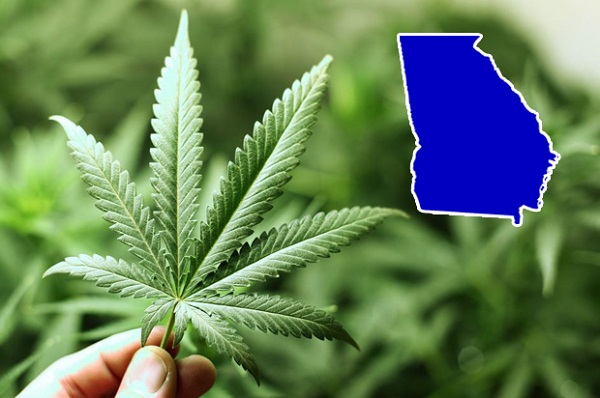Delta 9 is becoming more and more popular, but it is a dangerous substance to consume. Delta 9 is legal in many states and promises to relieve stress and anxiety. But for many people, delta 9 is more of a problem than it is good because the substance is highly addictive and can negatively impact your health.
What Is Delta 9?
Delta 9 is a type of cannabis.
It gets its name from the fact that it contains 9 THC molecules. Unlike CBD, delta-9 THC is psychoactive, which means it can make you feel aroused. Cannabis plants contain many different cannabinoids, and each has its own effects. Delta 9 THC is just one of them.
What makes this cannabinoid so dangerous? This is similar to the dangerous consequences of using marijuana. It is an intoxicating substance that changes your perception of reality. Delta 9 can be mentally addictive and seriously affect your brain chemistry.
How does delta-9 affect the body?

THC is the cannabinoid responsible for making people experience an intoxicating effect when they consume cannabis.
The most abundant form of THC is delta-9, which has an intoxicating effect. In other words, delta-9 is what makes you feel high.
After consuming cannabis, you might experience the following positive short-term effects:
- altered perception of time and events
- giddiness
- increased focus
- relaxation
However, THC can also have some side effects, including:
- anxiety
- difficulty thinking and speaking
- dry mouth
- increased appetite
- memory loss
- rapid heart rate
- red eyes
- slowed reaction times
Like CBD, people have associated delta-9 THC with a number of potential medical benefits.
Is delta-9 safe to use?
Most people tolerate delta-9 THC well, but it’s important to be aware of the risks and possible side effects. THC causes your brain to release large amounts of dopamine, the feel-good chemical. This is why so many people enjoy being high. But this release of dopamine comes with risks. 30% of people who use cannabis develop a cannabis use disorder.
Cannabis withdrawal symptoms can occur if you go from regular cannabis use to quitting.
Are there potential benefits to using delta-9?
Yes, delta-9 THC has been associated with a wide range of potential medical benefits.
According to a 2021 Trusted Source study, THC can treat:
- anxiety
- glaucoma
- insomnia
- low appetite
- muscle spasticity
- obstructive sleep apnea
- nausea
- pain
The Food and Drug Administration has approved some medicines containing THC for the treatment of diseases. For example, experts use a synthetic form of delta-9 THC to create dronabinol (Marinol), which they use to stimulate appetite in people with HIV, people undergoing chemotherapy, and people with anorexia.
Are side effects possible when using delta-9?
Yes. THC, including delta-9 THC, can have side effects.
Many of the common side effects of THC are temporary. These side effects can include:
- anxiety
- dry mouth
- increased appetite and heart rate
- memory loss
- red eyes
- slowed reaction times
Lastly, although there have been no recorded deaths from cannabis overdosing, it’s definitely possible to overdo it and misuse cannabis. Using too much cannabis might make you feel anxious, confused, or dizzy. To avoid an unpleasant experience, pace yourself.
In rarer cases, high dosages of cannabis can also cause:
- hallucinations
- paranoia and panic attacks
- nausea and vomiting
Usually, negative experiences with cannabis go away as you come down from the high. If you’re experiencing a bad high, try to relax and hydrate. Remember that the effects are temporary.
If possible, consider discussing THC with a doctor or another healthcare professional before trying it for yourself, especially if you’re hoping to use it to treat a medical condition. Look for a knowledgeable cannabis-friendly doctor.
Does delta-9 use carry risks?

Apart from the aforementioned side effects, there are some risks of delta-9.
If you use cannabis while smoking, remember that smoking anything, including cannabis, can affect your lungs and throat. Some 2018 studies showed that smoking cannabis can cause bronchitis and may increase your chances of developing chronic obstructive pulmonary disease.
Early cannabis use can also affect brain development. Some studies in 2014 showed that cannabis can affect your brain development if you use it as a teenager.
Researchers found that people who started using cannabis during adolescence were more likely to experience memory and learning problems, but it’s not clear if these effects are permanent.
Is delta-9 legal?
Delta-9 THC is not federally legal in the United States. However, each state has its own laws.
In some states, cannabis and cannabis derivatives such as delta-9 THC are only legal for medical use, while others are for recreational use.
Cannabis laws are constantly changing. You can learn about your state’s cannabis laws by viewing the helpful Norml map.
What should you look for when selecting a product?
The FDA does not regulate delta-9 THC products. It is important to research the company or supplier before purchasing their products.
When it comes to buying THC products, it’s best to buy from reputable companies. It is safer to buy products tested by a third party lab. You should be able to read these laboratory reports on the company’s website.
Of course, if you are buying cannabis from a local grower, they may not be able to test their products in a lab. This does not necessarily mean that their cannabis is bad.
You can check the quality:
- learn how their products are grown
- asking them which product to choose to achieve the desired effect (eg relaxation, productivity, sleep)
- talking to other clients – it’s always good to get a recommendation
If you are not used to using cannabis, it is safer to start at a low dosage. Because of this, it is better to use a product with a not very high THC content. Usually a good starting point is 1 to 2 milligrams. If necessary, you can gradually increase the dosage.
If you have a lung condition or if smoking irritates your chest and throat, it may be best to avoid smoking cannabis and instead opt for THC-rich foods or tinctures. Keep in mind that eating cannabis products takes longer to take effect than smoking cannabis.
Frequently asked questions
Chemically, delta-9 and delta-8 are very similar. They have a common chemical formula C₂₁H₃₀O₂. The difference between delta-8 and delta-9 is that one of the carbon-carbon double bonds is in a different location.
As far as bodily effects go, both delta-9 and delta-8 are intoxicating. However, according to anecdotal evidence, delta-8 is less effective than delta-9. According to this 2022 study, some people claim to have fewer side effects when taking delta-8 compared to delta-9.
Experts need more research to determine the exact differences between delta-9 effects and delta-8 effects.
Is delta-9 safe?
You can safely consume delta-9. But it has some potential risks and side effects.
Common short-term side effects of delta-9 THC include:
- anxiety
- dry mouth
- increased appetite and heart rate
- memory loss
- red eyes
- slowed reaction times
Rarer short-term effects of cannabis can include:
- hallucinations
- paranoia and panic attacks
- nausea and vomiting
If you smoke delta-9 THC — that is, if you smoke cannabis — it can irritate your respiratory system. Smoking cannabis has been linked to bronchitis and COPD.
If you want to use delta-9 THC products for medical reasons, it’s best to speak with a cannabis-friendly clinician before using it yourself.
Is delta-9 legal?
In the US, delta-9 THC products are legal in some states and illegal in others.
In some states, cannabis is legal for medical purposes, while in others it is legal for recreational use. Take a look at Norml’s cannabis law map to learn more about your state’s cannabis policy.
Can delta-9 get you high?
Yes! In fact, delta-9 is the most abundant form of THC in cannabis plants. THC is the chemical that makes cannabis intoxicating.












